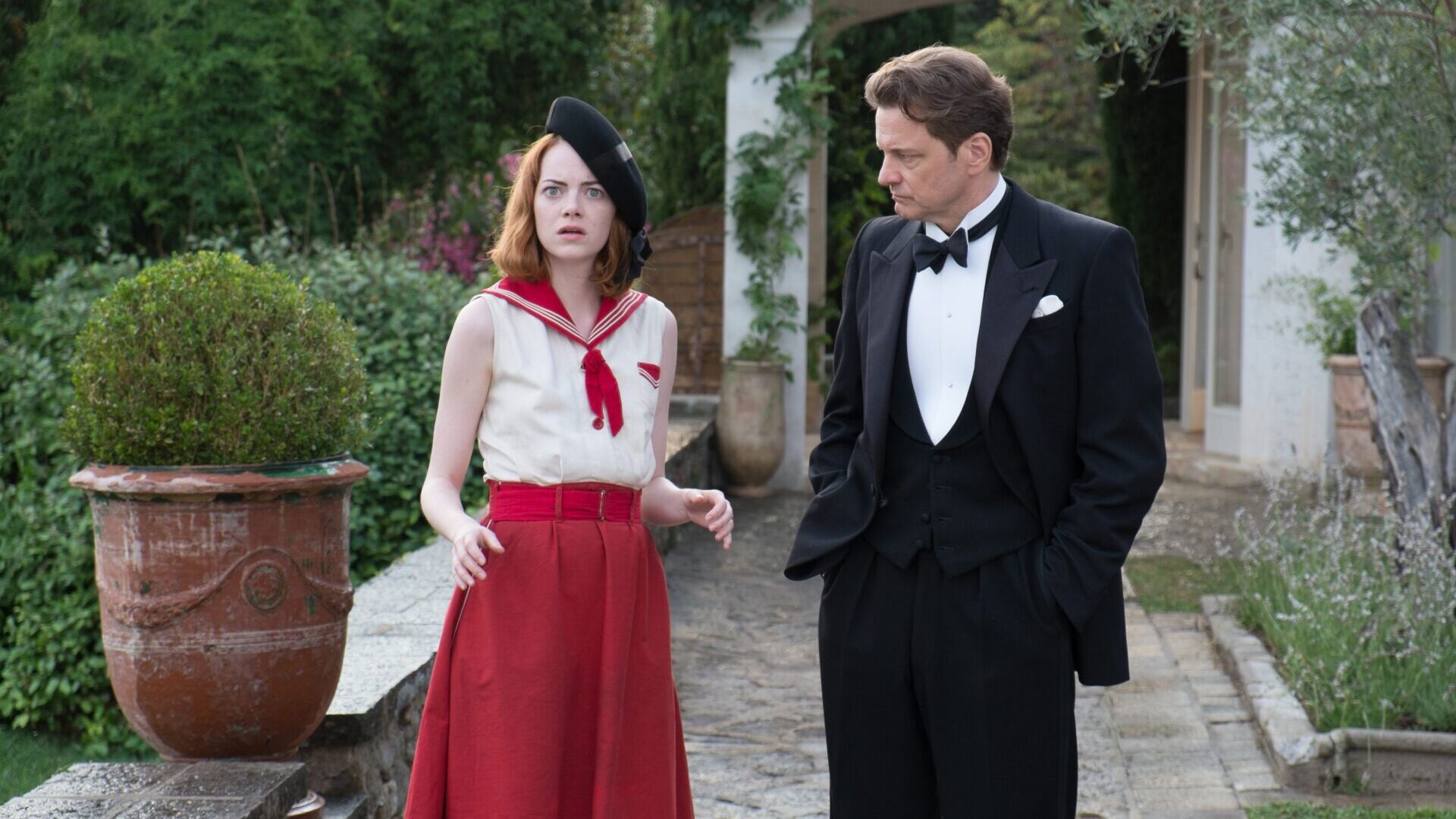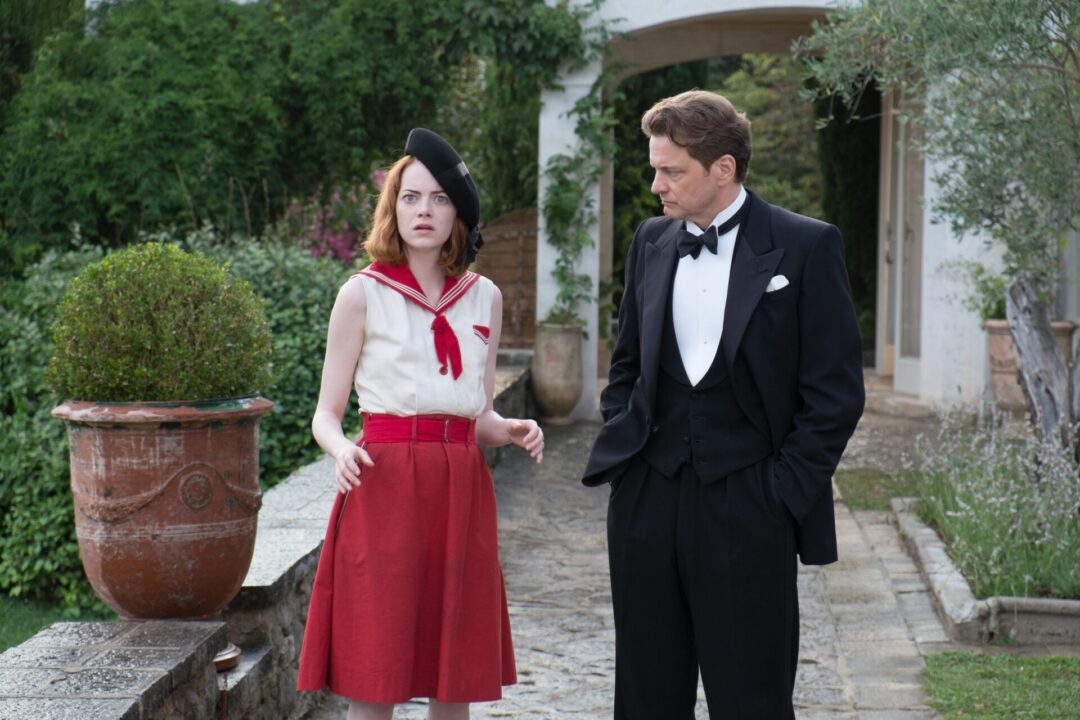At seventy eight years old, Woody Allen proves that he still has a few tricks up his sleeve.
In the auteur’s latest original screenplay and feature film, Allen circles back around to an inspired part of his youth, his love of magic, to dream up this charming and lovely outing. While the magic in the film readily spawns from its theatrically-inclined characters, the beautiful French Riviera landscapes and palpable chemistry between its cast (a pause to acknowledge the brilliance from longtime Allen-collaborator, casting director Julie Taylor) deems this an enjoyable, if only somewhat slightly too tamed, film.
Our “Allen” in this 1920’s-set mad-cap comedy is Colin Firth, as grouchy yet gentlemanly Stanley, a world-class magician who, when not performing as Chinese conjurer Wei Ling Soo, snaps at the foolishness of the easily dupable sea of socialites around him. Which soon leads Stanley and his indulgently superior self to a challenge of sorts; when an opportunity arises from show biz pal and lifelong friend Howard Burkan (Simon McBurnay), who tells the magician of an impossibly gifted young psychic in the form of a doe-eyed American gal, Sophie (played by a fully hypnotizing and movie-stealing Emma Stone) Stanley immediately shoots down the idea that spiritual forces should take the credit. It takes no convincing for the spiritually-poppy-cocking showman to hop from across the pond with Simon, under false identities, to the beautiful south of France, to attempt to expose the pretty young thing for the fraud that Stanley knows she is- or for the mystifying enchantress that she possibly could be.
Leave it to one of the oldest working writer/directors (or people working in show business, for that matter) to evoke flirt and spark so naturally captured on camera that it evokes the timeless cinematic romances of a Bogart and Hepburn. Firth’s pompous parading of his ‘bountiful’ intelligence plays strong and firm, which makes for rewarding moments for Stone as Sophie’s spot-on visions and visionary self to continue to stupefy his rational sensibilities. The cat and mouse effort strings the film along in innocent fashion, and although Firth serves admirably here, it is Stone, like that most-talented lead in a high school play, who we can’t help gushing over every step of the way.
The cat and mouse effort strings the film along in innocent fashion, and although Firth serves admirably here, it is Stone, like that most-talented lead in a high school play, who we can’t help gushing over every step of the way.
In what makes for an incredible forty-ninth (!) feature film, the writer/director’s latest love affair is intoxicating in so many ways. Though even with its whip-smart story and dialogue, it will probably end up finding its place mentioned among other just-s0 warmly received Allen films. It’s not that it’s a poor film- even the least dialed-in original effort from the cynically-comforted comedian still offers rich returns of cinema- it’s just that after all the provided amusement, it still leaves this audience a little too sober to deem it a sweeping achievement. Where this reviewer would argue that 2011 saw his last great punch-drunk knockout hit (With kudos to a career-best Cate Blanchett in last year’s Oscar-winning Blue Jasmine) with the fully realized Midnight in Paris, this one trolleys along just so-so, providing nostalgically warm-hearted intention in earnest and measured form.
If Magic in the Moonlight falls short of being a more stirring type of movie, it’s not for its lack of philosophically-pointed rhapsodizing, clearly voicing some of the director’s most trademark sentiments in spritely fashion. And although Firth’s relentless upending of his fellow man’s talking-to’s of simple joys to achieve simple happiness, whether through magic tricks or the belief of communicating with loved ones from “the beyond,” may seem very familiar when compared to the director’s past films, this story surprises by going one step further, in what reminded me of the final scene and line from Manhattan. Stanley wades ever deeper into the unknown, despite his own principles and self-discipline, to perhaps believe that Sophie and her gifts might just be proof that life is something more: that life is something grander, more limitless, and truly, magical. And while the promise of an enchanted world might not end up self-fulfilling (might, not), Allen reveals that even he knows that magic, and non-explanation exists, if only in the very real, overcoming feeling that is felt when merely seeing a lover’s smile. For this, it seems that the magician has pulled off his greatest trick: to “have a little more faith in people.”
Ryan Rojas
Ryan is the editorial manager of Cinemacy, which he co-runs with his older sister, Morgan. Ryan is a member of the Hollywood Critics Association. Ryan's favorite films include 2001: A Space Odyssey, The Social Network, and The Master.


